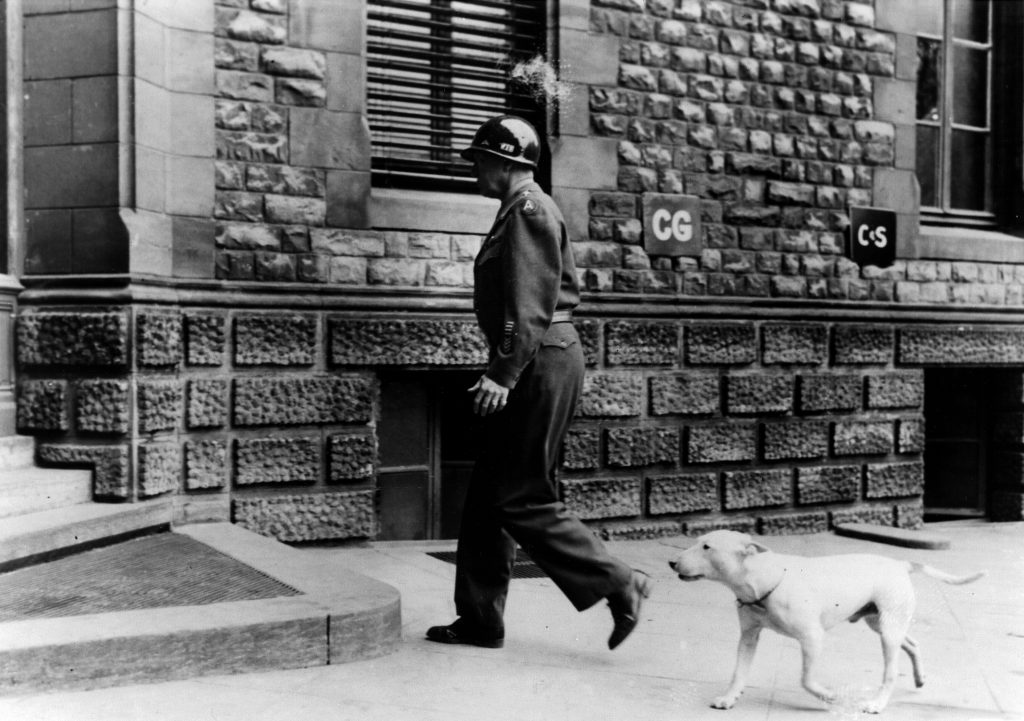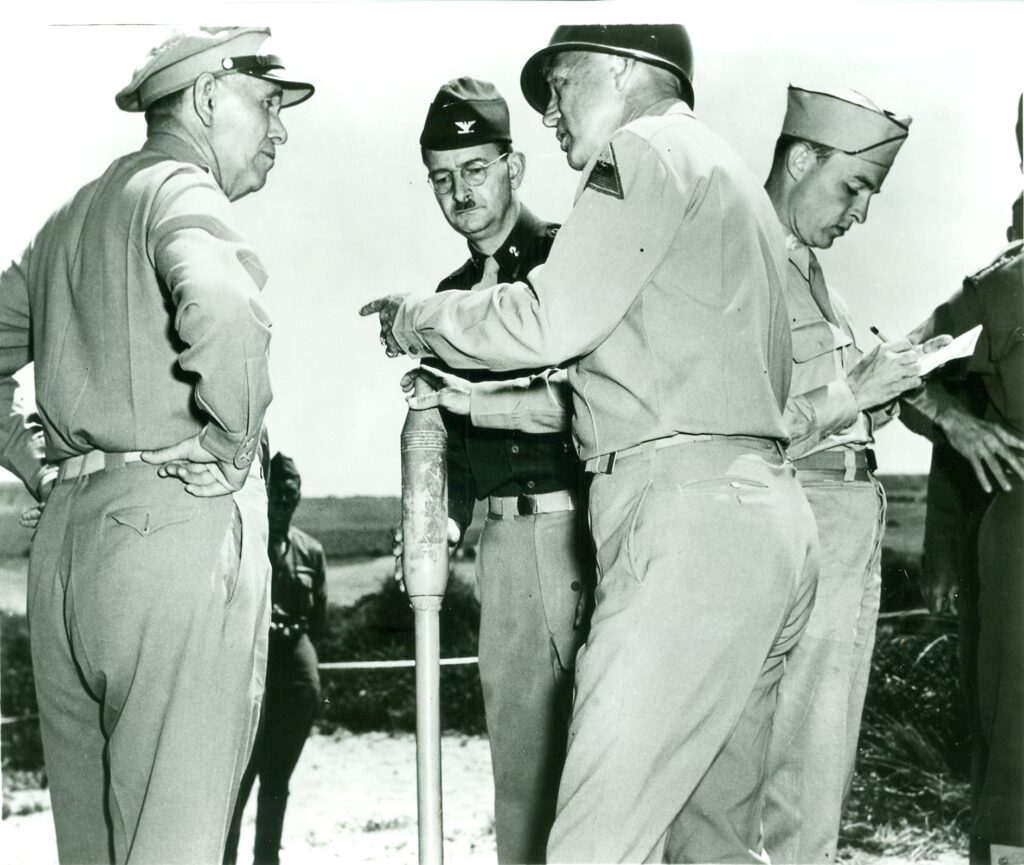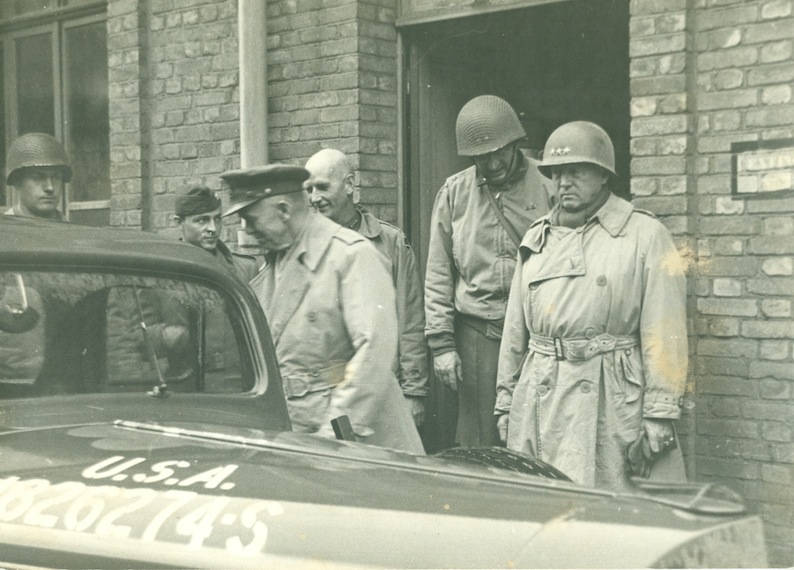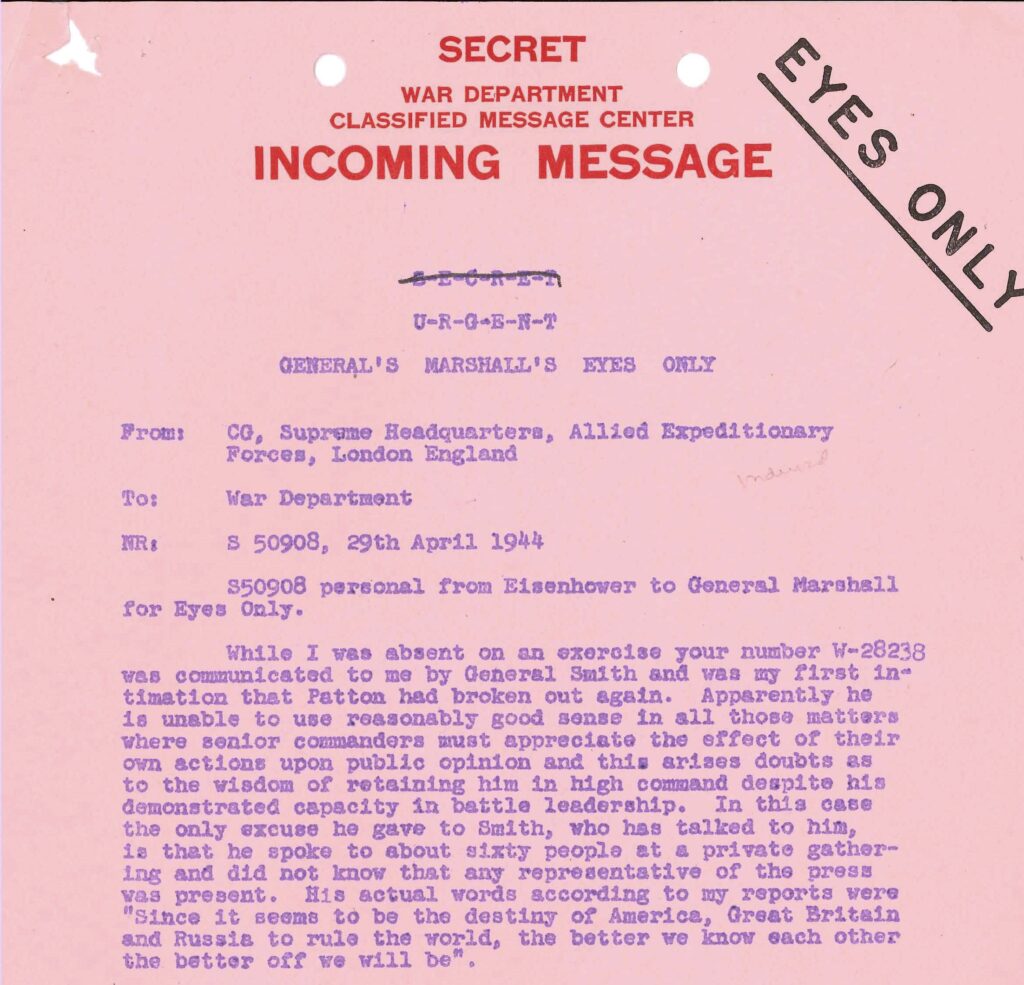This is a previously published blog.

Gen. George Patton and his dog, Willie, during World War II.
At the opening of a British Welcome Club for American soldiers in Knutsford, England, on April 25, 1944, Gen. George Patton’s comments are among many well-known and controversial episodes from his Army career. U.S. Army Chief of Staff George C. Marshall’s response to Patton’s comments are less well known, but they serve as an example of his leadership.

Gen. George Marshall talks with Gen. George Patton about armament, 1943.
When speaking at the opening of the club, Patton said that it was “the destiny of the United States and Britain to rule the world.” Marshall became aware of Patton’s comments from newspaper reports. A Washington Post editorial offered the following assessment of Patton: “Whatever his merits as a strategist or tactician he has revealed glaring defects as a leader of men.” The same editorial quoted Rep. Karl E. Mundt of South Dakota as saying that Patton “succeeded in slapping the face of every one of the United Nations except Great Britain.” The public reaction to Patton’s remarks led Secretary of War Henry L. Stimson to denounce Patton’s comments as personal opinion, not United States policy, and led the Army to defend its decision to promote Patton to the rank of general.

Gen. George Marshall and Gen. George Patton somewhere in France, 1944-45.
On April 29, 1944, Marshall received a message from Gen. Eisenhower about the incident. He wrote that Patton “is unable to use reasonably good sense in all those matters where senior commanders must appreciate the effect of their own actions upon public opinion and this arises doubts as to the wisdom of retaining him in high command.” Eisenhower, who sought Marshall’s opinions and recommendations about how to resolve the matter, noted “I am deferring final action until I hear further from you.”

Message from Gen. Eisenhower to Gen. Marshall regarding Gen. Patton having “broken out again.”
In his response Marshall stated he had “been considering the matter on a purely business basis.” Marshall noted,
“Its effect on you and the troops and on the confidence of the public in the War Department and in you is opposed to the unmistakable fact that Patton is the only available army commander for his present assignment who has had actual experience in Fighting Rommel and in extensive landing operations followed by a rapid campaign of exploitation.”
He continued, “Whether or not we can forego the latter advantage because of the unfavorable effects referred to I leave entirely to your decision.” In true Marshall form his message lays out both sides of the situation and leaves Eisenhower to decide the best course of action.
After he reached his decision, Eisenhower sent Patton a letter that described the adverse reaction to Patton’s comments and Eisenhower’s growing frustration with Patton’s inability to exercise self-control. Although Eisenhower decided not to relieve Patton, the concluding sentence of his letter warned,
“I want to tell you officially and definitely that if you are again guilty of any indiscretion is speech or action that leads to embarrassment for the War Department, any other part of government, or for this Headquarters, I will relieve you instantly from command.”
The Knutsford affair and Gen. Eisenhower’s decision perfectly illustrate Marshall’s approach to leadership. He surrounded himself with competent and capable subordinates whom he could trust to successfully complete their responsibilities so that he could focus his attention and energy on bigger issues.
For more information on Marshall and Patton’s relationship, watch our 2018 Legacy Lecture.
